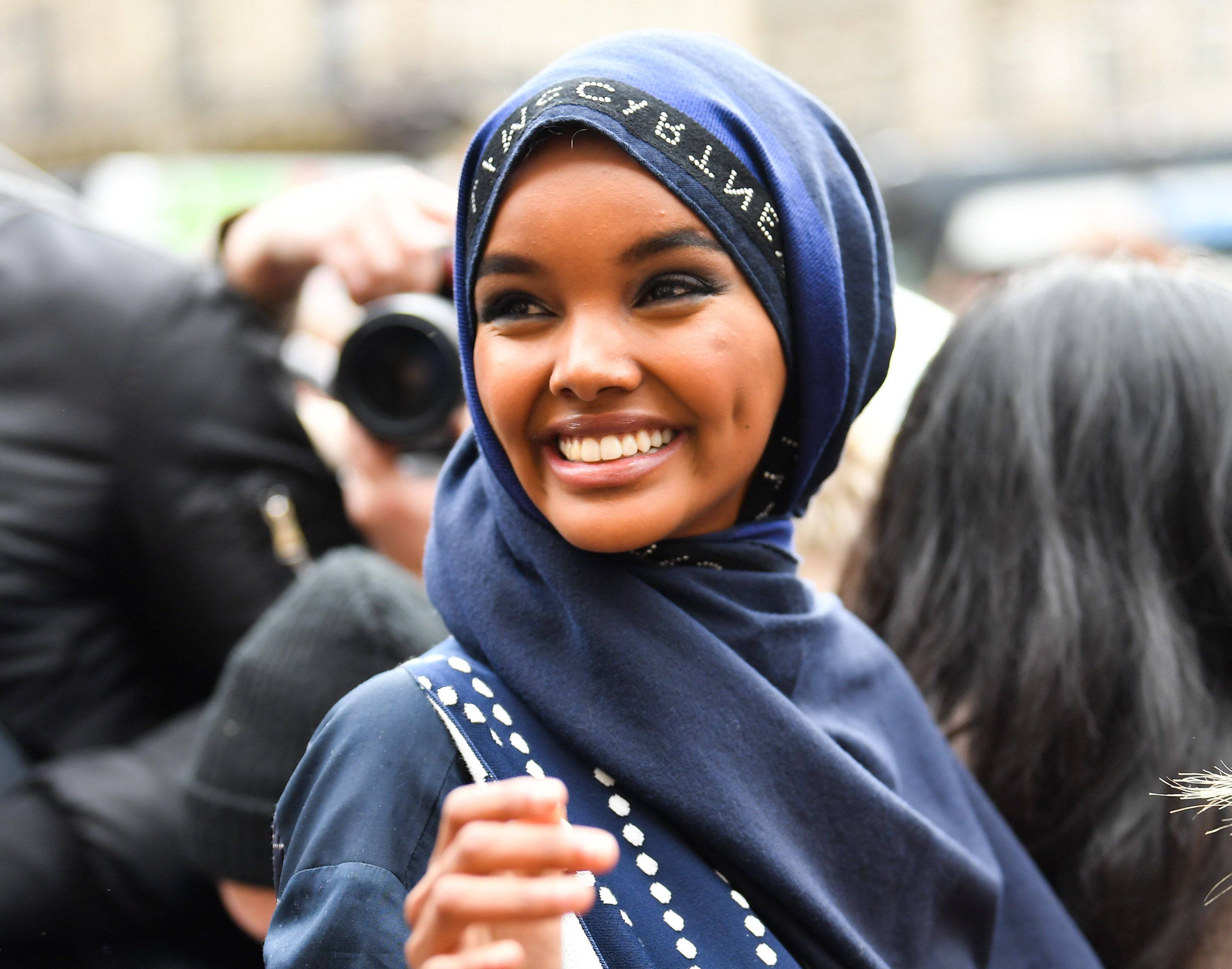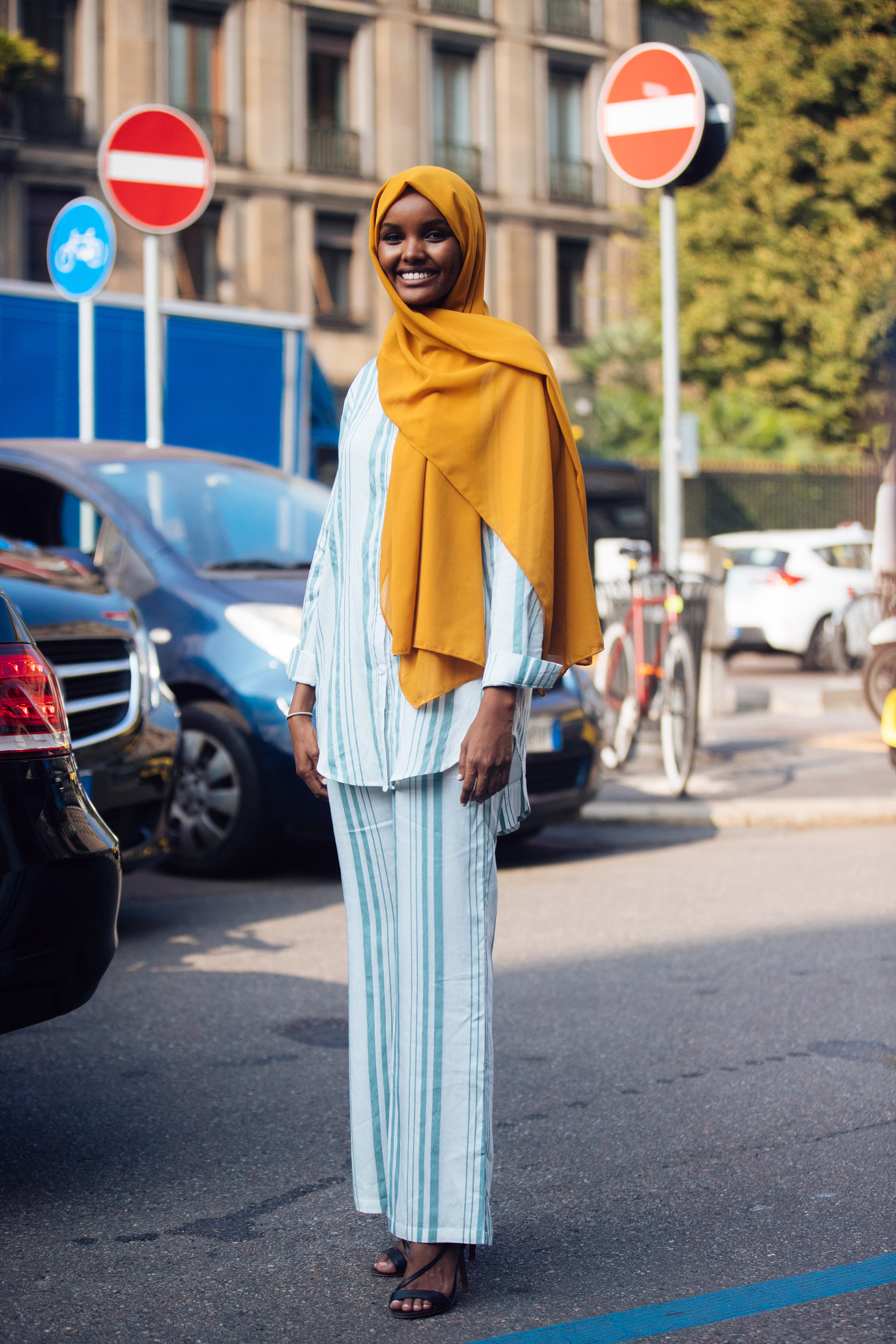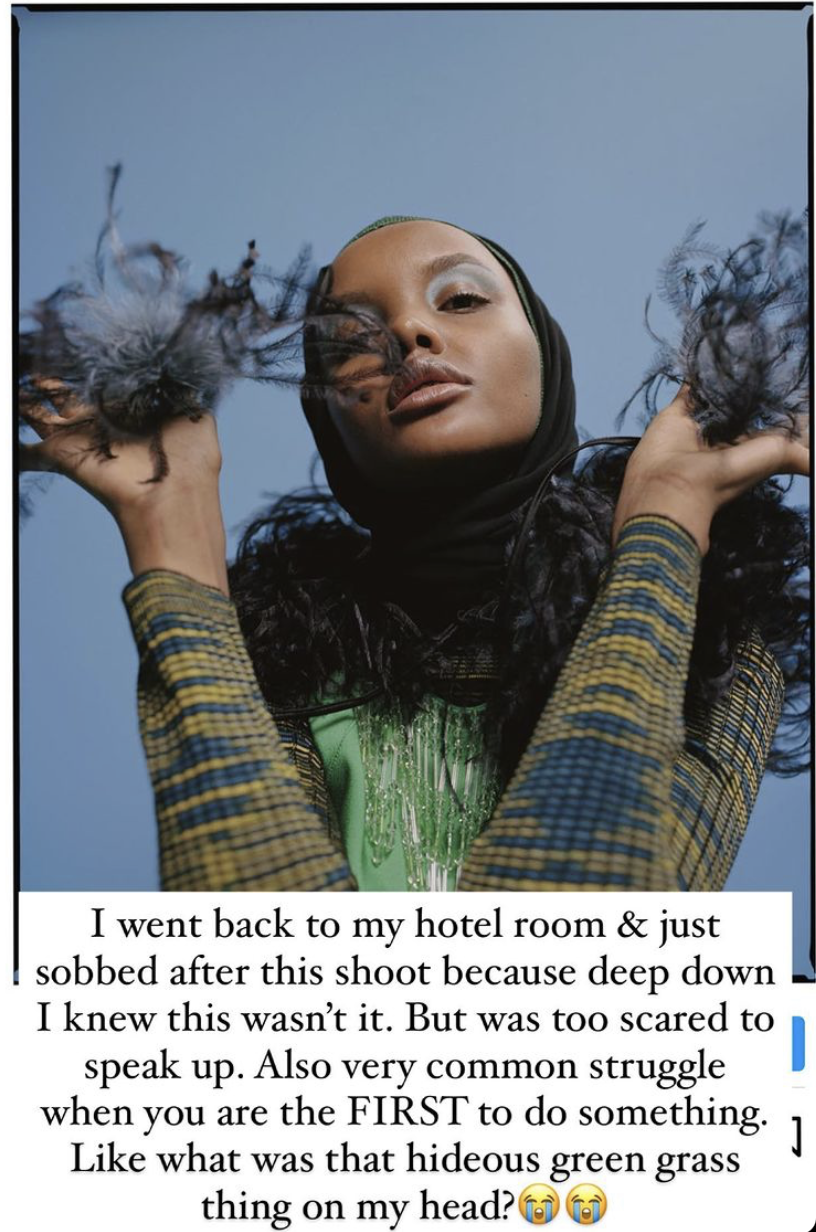

When Halima Aden burst onto the scene in 2017 making her debut at New York Fashion Week, it felt like the fashion industry was finally getting the representation it so sorely needed. Aden was, at the time, just 19 years old, a teenager who overnight became the first Muslim hijab-wearing supermodel.
But three years on, Aden is reevaluating her modeling career, saying that in trying to conform to the fashion industry she had to compromise on her beliefs, specifically the way her hijab was incorporated into shoots, runway shows and campaigns.
The 23-year-old Somali-American model took to Instagram stories to write a lengthy apology to her followers, especially Muslim women who looked to her to be a role model and someone to represent them on a global scale.
“As I’ve said many times, being a minority inside of a minority inside of a minority is never easy,” Aden wrote. “Being a ‘Hijabi’ is truly a journey with lots of highs and lows, but with that being said, my hooyo macaan (mother) has been pleading with me for years to open my eyes.”

“Thanks to COVID and the break away from the industry, I have finally realized where I went wrong in my personal hijab journey,” she continued. “I wish I never stopped bringing my black hijab to set. Because the minute I got comfortable… let’s just say I got too carried away.”
“I can only blame myself for caring more about the opportunity than what was actually at stake. I blame myself for being naive and rebellious,” she wrote, before saying that she does, however, blame the industry for its lack of Muslim women stylists.

Aden went on to share photos from shoots she’s been involved in, highlighting moments where she wishes she’d spoken up and refused to compromise on the inclusion of her hijab. “I went back to my hotel room and just sobbed after this shoot because deep down I knew this wasn’t it,” she wrote across one image. “But I was too scared to speak up – a very common struggle when you are the first to do something.”
Ending her posts, Aden noted that she’s “not rushing back to fashion” and will only work if her needs are properly met. Given how much Aden has done in just three short years: opening the doors for countless other hijab-wearing models, partnering with UNICEF to help young children in need – as she once was – and giving a Ted Talk to raise awareness for refugees, if the industry doesn’t jump to action to ensure she’s comfortable and cared for, it would be a huge loss.
Aden’s honesty in realizing her mistakes and bravery in admitting them to her followers shows exactly why she’s the role model – and hopefully still supermodel – we need.














